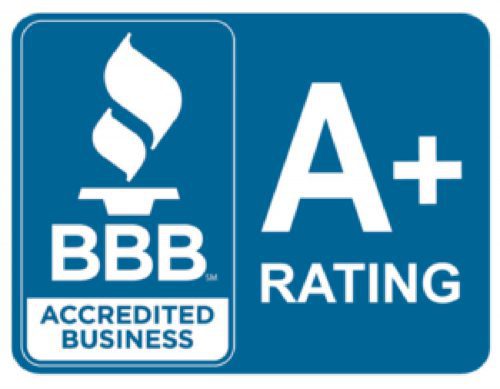Hypoxic-Ischemic Encephalopathy (HIE)
WHAT IS HYPOXIC-ISCHEMIC ENCEPHALOPATHY (HIE)?
Hypoxic-ischemic encephalopathy (HIE) is a type of birth injury caused by the lack of oxygen to the child’s brain. Before, during, or immediately after childbirth, if the baby cannot get enough oxygenated blood to the brain, it can cause serious or permanent brain damage. HIE birth injuries may be caused by complications during pregnancy, failure to monitor the baby and mother, or other medical negligence.
OXYGEN AND BLOOD SUPPLY TO THE BABY
Oxygen and glucose provide fuel for the brain. This is supplied by the blood pumping through the body, carrying oxygen to the brain so that the brain and nervous system can function properly. Even a temporary restriction in blood supply or oxygen to the brain can begin to cause impairment.
An extended lack of oxygen can cause permanent brain damage. The longer the brain goes without oxygen, the more extensive the damage to the brain can be. Even a few minutes without oxygen can cause permanent damage.
Lack of oxygen is often the cause of brain injury for infants and newborns. This can leave children suffering developmental injuries and physical disabilities for the rest of their lives. It may be even more painful for parents to learn that the brain injury was preventable.
HYPOXIA BRAIN DAMAGE
Anoxia and hypoxia are related conditions. Anoxic brain injury is damage caused by a total lack of oxygen supply. Hypoxic brain injury is an injury caused by a reduction of oxygen supply. Hypoxic ischemia is a partial lack of oxygen to the brain combined with a decrease in blood flow to the brain, which can lead to brain damage.
Hypoxic-ischemic encephalopathy can involve a number of causes, from traumatic accidents to drug overdose to shock. The cause of HIE is generally different for adults compared to newborns, who are more likely to suffer anoxia in the womb or during labor. For adults, HIE may be caused by a cardiac arrest or traumatic brain injury, with secondary hypoxia following the ischemic event.
When blood flow and oxygen to the brain is reduced, the body may compensate by prioritizing blood flow to the brain and other vital organs. If the brain continues to lack oxygen, early onset of symptoms may begin with memory problems and difficulty in learning tasks. Continued oxygen deprivation can cause:
- Decrease in motor control
- Cognitive dysfunction
- Cyanosis of the skin
- Increased heart rate
- Loss of consciousness
- Coma
- Seizures
- Brain death
HOW DO I KNOW IF HIE WAS CAUSED BY MEDICAL MALPRACTICE?
How is a parent supposed to know if a hypoxic-ischemic encephalopathy injury was caused by medical malpractice or was just a birth complication? It is difficult to know if the doctors, nurses, hospitals, or other healthcare professionals made a mistake or error during treatment that caused an injury. It is rare that the doctor comes forward later and admits to making a mistake. It is generally up to the parent to contact an experienced birth injury malpractice lawyer to find out if there was a mistake, negligence, or error that caused their child’s HIE brain injury.
Medical negligence is based on the standard of care of a health professional in a similar situation. A parent may not be aware of the standards or practices of an OB/GYN or anesthesiologist in the situation of providing care to the mother during labor or childbirth. In a medical malpractice case, a medical expert reviews the records, testimony, and other documentation to identify the cause of the injury and whether it was due to medical negligence.
In an HIE birth injury or other oxygen deprivation injury case, some of the common causes due to medical malpractice may include:
- Failure to monitor the mother
- Failure to monitor the baby
- Failure to do a proper evaluation
- Delayed delivery
- Delayed diagnosis
- Wrong patient error
- Delayed treatment
- Diagnostic errors
- Improper medication
- Improper delivery
HOW MUCH IS AN HIE BIRTH INJURY SETTLEMENT WORTH?
When the brain injury was caused by negligence, medical mistakes, or medical errors, the healthcare professionals responsible should be held accountable for their actions. It can cost a family millions of dollars in care and medical expenses to raise a child with a brain injury and the negligent parties should cover the costs.
A medical malpractice lawsuit can help the family recover damages associated with the birth injuries. Damages in a medical malpractice lawsuit can include:
- Medical expenses
- Future medical care
- Loss of enjoyment of life
- Pain and suffering
- Loss of companionship
- Loss of earning capacity
The estimated costs of a lifetime of care for a child born with a birth injury can vary greatly, depending on the extent of the injury. A child with a minor brain injury may be able to function independently and only have minor long-term damage. However, a more severe brain injury may require around-the-clock care for the child for the rest of his or her life, which could continue for 70 years or more.
The Centers for Disease Control Prevention (CDC) calculated the lifetime costs for a child with severe developmental disabilities. The estimate came up with 4 figures, based on the extent of disability. The average lifetime costs for a person in 2003, adjusted for inflation to the year 2020, were estimated at more than:
- Mental Retardation: $1,432,000
- Cerebral Palsy: $1,301,000
- Visual Impairment: $799,000
- Hearing Loss: $589,000
In a lawsuit for an HIE brain injury, the damages claim may also take into account the losses to the family. The family also has costs associated with having a disabled child, including time away from work, loss of income to take care of the child, pain and suffering, and loss of support. With all the costs associated with a birth injury, a birth injury malpractice claim can amount to millions of dollars.
Call (800) 529-6162 Today for Free Case Review.
SIGNS AND SYMPTOMS OF HYPOXIC-ISCHEMIC ENCEPHALOPATHY HIE
Signs and symptoms of a newborn suffering HIE can occur during pregnancy, during labor, or in the neonatal or infant stages. What patients and doctors should look for depends on the stage of pregnancy or childbirth. During pregnancy and labor, signs of HIE may include:
- Signs of fetal distress
- Decreased fetal movement
- Severe maternal cramping and back pain
- Abnormal fetal heart rate
- Abnormal contractions
- Abnormal amniotic fluid levels
- Abnormally low or high maternal weight gain
- Maternal high blood pressure
- Vaginal bleeding
Signs and symptoms of possible HIE or oxygen deprivation during delivery or immediately after delivery may include:
- Abnormal heart rate
- Meconium staining
- Low Apgar scores
- Seizures
- Difficulty feeding
- Breathing problems
- Low muscle tone
- Organ failure or organ damage
- Abnormal response to light
- Abnormal reflexes
- Hyperalert or lethargic
- Coma
In the days, weeks, or months after delivery, signs of HIE damage may present with:
- Impaired motor function
- Seizures
- Delayed developmental milestones
- Delayed growth
- Hearing or visual impairments
Some of these medical conditions caused by a lack of oxygen include cerebral palsy, epilepsy, developmental delays, neurodevelopmental delays, cognitive impairment, language impairment, coordination problems, and motor impairment. Unfortunately for parents, the extent of the impairment may not become known until the child reaches the age of 3 to 4.
SETTLEMENT OFFERS IN A BIRTH INJURY HIE CASE
A settlement offer is an offer by one party to resolve the case without going to trial. In a medical malpractice HIE case, the doctors, hospitals, or insurance companies may offer the injury victim and their family an amount of money to settle the claim. If the plaintiff accepts the offer, the parties will agree to the terms and the lawsuit will be settled. Ultimately, it is up to the client to accept or decline the offer.
As the case gets closer to trial, both parties may have a better idea of the strengths and weaknesses of the case. The hospitals and insurance companies may offer a settlement to avoid the possibility of a jury finding for a much higher award amount.
Depending on the situation, it can also be better for the plaintiff to accept a settlement. Taking the settlement offer avoids the stress, costs, and time of a trial. It may also avoid an unpredictable jury who could find for the doctors and not award anything to the victims. Talk to your birth injury medical malpractice lawyer about your case and when a settlement may be the best option.
HOW A BIRTH INJURY MALPRACTICE LAWYER CAN HELP YOUR FAMILY AFTER AN HIE BRAIN INJURY
Deciding to file a medical malpractice lawsuit after a child’s birth injury can be a difficult step. There are a lot of reasons why the parents may put off a lawsuit or believe they don’t have a claim. After a child is born, the parents may be too busy to think about meeting with lawyers and filing a lawsuit. However, when parents do go forward and make that important phone call, they often find that they do not have to do much work and that their lawyer handles almost everything for them.
After an initial meeting, a birth injury lawyer may first spend time getting a copy of the medical records, reviewing the records, and consulting with medical experts. After a thorough review, your lawyer will be able to inform you about your rights and options and the strength of your case. Having a lawyer may even make your life simpler by dealing with the doctors, hospital, billing department, and the insurance company so you don’t have to.
A STRONG ADVOCATE FOR YOUR FAMILY
The parents may also worry they don’t have a case because the doctors or hospitals deny that anything went wrong. The doctors, hospitals, and insurance companies all have an interest in denying anything went wrong. However, they do not have your best interests at heart. Your medical malpractice lawyer is an advocate for you and your family, not for the insurance company. Your lawyer can investigate your case and let you know if you have a case and fight to get the compensation you are owed to help care for your child.
Call (800) 529-6162 Today for Free Case Review.
HYPOXIC-ISCHEMIC ENCEPHALOPATHY BRAIN INJURY ATTORNEYS
If your child suffered a hypoxic-ischemic brain injury, it may have been caused by the failure of the medical system to provide proper care. If a medical mistake caused developmental delays for your child, talk to an experienced medical malpractice attorney about holding the doctors and hospitals accountable for their negligence. Do not hesitate to contact Gilman & Bedigian today for a free consultation.











